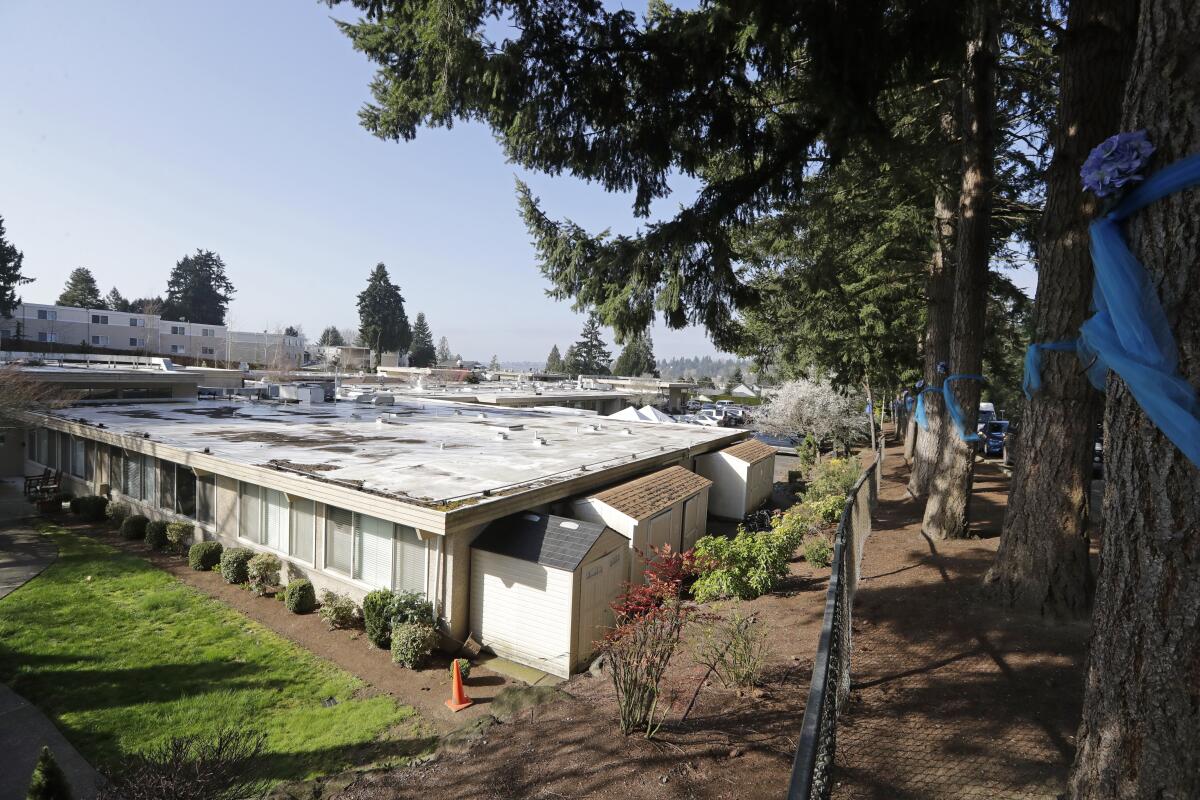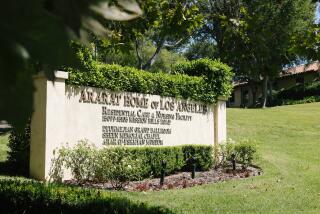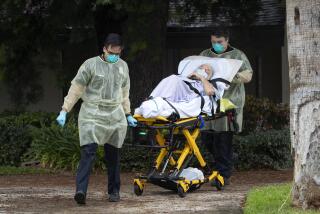Federal regulators find serious infractions at Seattle-area nursing home hit by coronavirus

SEATTLE — Federal regulators on Monday said they found serious infractions during their check of a Seattle-area nursing home hard hit by the coronavirus and they’re giving it three weeks to fix them.
The Centers for Medicare and Medicaid Services, along with state regulators, announced the preliminary results from the March 16 inspection.
They found that the Life Care Center of Kirkland failed to rapidly identify and manage sick residents; failed to notify the Washington Department of Health about the increasing rate of respiratory infections among residents; and failed to have a backup plan in the absence of Life Care’s primary clinician, who fell ill.
Each of those problems placed residents in “immediate jeopardy,” the inspectors said. The agency said it notified Life Care on March 18 that it had 23 days to come into compliance or be terminated from participating in federal health programs. CMS Administrator Seema Verma promised regulators would conduct another inspection soon.
At least 37 deaths have been linked to the COVID-19 outbreak at the Life Care Center. Life Care did not immediately respond to an email seeking comment.
State regulators are now visiting all of Washington’s nursing homes to ensure they have proper infection controls, Washington Department of Social and Health Services Secretary Cheryl Strange said in a written statement.
According to the Centers for Medicare and Medicaid Services, 147 nursing homes across 27 states have at least one resident with COVID-19 — a cause for concern given that the disease is especially dangerous for the elderly.
CMS also said Monday it was temporarily halting routine inspections in favor of targeted looks at facilities in areas hard hit by — or expected to be hit by — COVID-19 outbreaks. It also said it is offering a voluntary self-assessment nursing homes can use to ensure they are properly screening staff and taking other precautions for limiting the spread of the virus.
“The loss of life in Kirkland was a tragedy,” Verma said. “This new process seeks to ensure that the tragedy is not repeated elsewhere, while giving nursing homes the space and flexibility they need to care for their uniquely vulnerable residents during this emergency.”
Several nursing homes and senior communities in the Seattle area have had deaths, and federal officials have found that staff members who worked while sick at multiple long-term care facilities contributed to the spread of COVID-19 among vulnerable elderly in the Seattle area.
One skilled nursing center in Bellingham, Shuksan Healthcare Center, had 29 new cases announced Sunday, bringing its total to 32.
Families of Life Care residents have expressed frustration that so long after the virus outbreak began in China, the U.S. health system was so slow to identify cases and conduct tests. Even as the nursing home seemed to be facing a spike in flu-like cases in mid-to-late February, visitors came as they always did, staffers were slow to start wearing face masks, and organized events went on as planned, including a Mardi Gras party attended by dozens of residents and visitors.
Dr. Jeff Duchin, health officer for Seattle and King County, said Life Care notified the county’s public health system on Feb. 27 in a message about an increasing number of sick residents. The message had no mention of severe illness or COVID-19.
“It didn’t indicate anything unusual,” Duchin told reporters last week, noting flu-like outbreaks are frequent in such facilities.
Life Care spokesman Tim Killian has previously said the facility had no reason to think the outbreak might be related to coronavirus.
More to Read
Sign up for Essential California
The most important California stories and recommendations in your inbox every morning.
You may occasionally receive promotional content from the Los Angeles Times.










